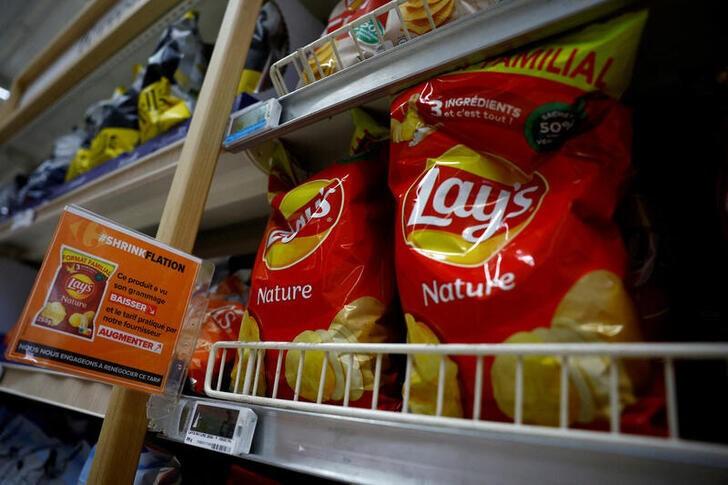PARIS—Carrefour is telling customers it will no longer sell PepsiCo products like Pepsi, Lay’s crisps, and 7up because they had become too costly, in the latest tug-of-war over prices between retailers and global food giants.
From Thursday, shelves with PepsiCo products at Carrefour stores in France will be accompanied by a note saying “We are no longer selling this brand due to unacceptable price increases,” a spokesperson for the French retailer said.





